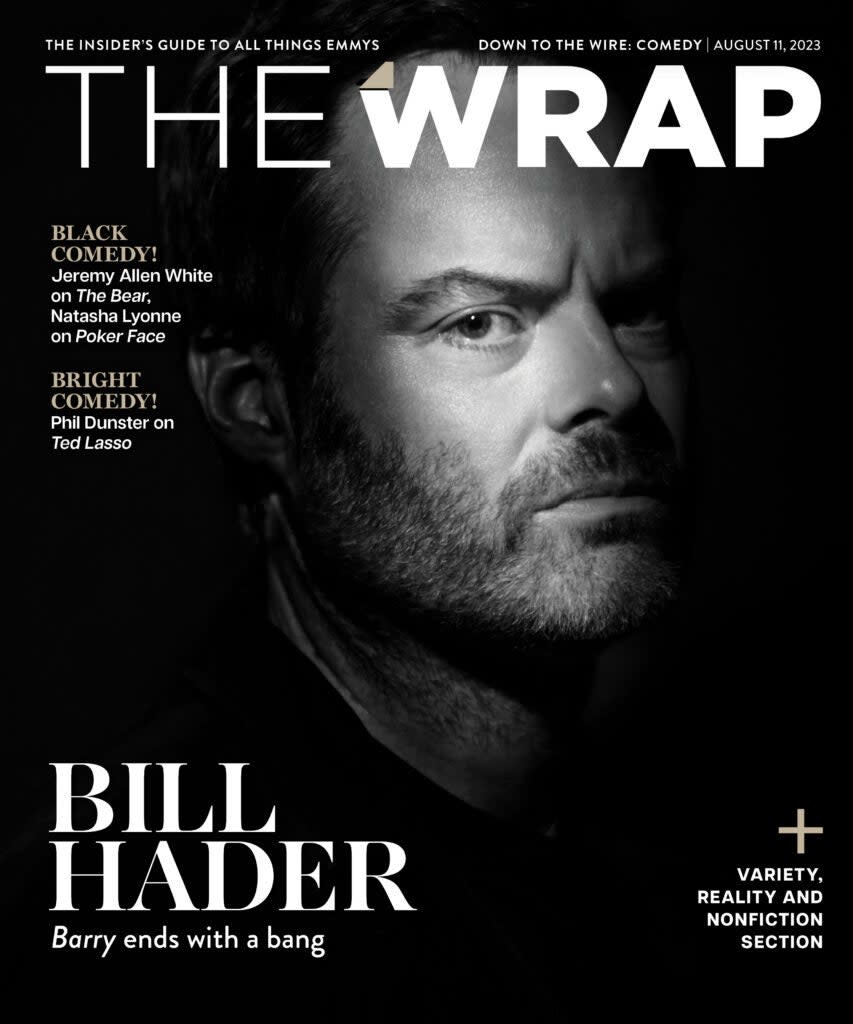‘Moonage Daydream’: What Quadruple Emmy Nominee Brett Morgen Borrowed From David Bowie
This story about Brett Morgen and “Moonage Daydream” first appeared in the Down to the Wire: Comedy/Variety/Reality/Nonfiction issue of TheWrap’s awards magazine.
Three years into the editing of his challenging David Bowie film “Moonage Daydream,” Brett Morgen was pretty sure he was in big trouble. He’d run out of money for the production, and he was working toward the nebulous idea of creating what he would later call “an expression of Bowie rather than an explanation of Bowie,” which meant he could pretty much go in any direction at any time, both visually and aurally.
“I thought I was off the rails, that I was deceiving myself that this will make sense,” Morgen said. “I’m not exaggerating to say that three years into the edit, no one had seen a frame—no one in my office, no financiers, no assistant editor. It was all in my head. So I brought my wife (producer Debra Eisenstadt) in at one point and said, ‘I don’t want notes, I just want to know if it’s a film. I just want to know that it’s not gibberish, that there’s something you can follow.’
“And after I pressed play, I started physically breaking down as she was watching it. I was crying, I was shaking and I was thinking of ‘The Shining’ and Jack Nicholson writing ‘All work and no play makes Jack a dull boy.’ I always believed in the goal of the project, to create an immersive Bowie experience, but I was absolutely unsure of my own ability to arrive there.”
When she’d finished watching that early version of the film, Eisenstadt turned to him and said, “It’s a diamond in the rough. Keep going.” He called that the “best words she could have possibly said,” and the course of the finished film backed up her instincts: a premiere slot at the 2022 Cannes Film Festival; a theatrical run that made it the top-grossing nonfiction film of the year (along with an HBO Max release that gave it Emmy eligibility); a spot on the Oscar documentary shortlist; wins at the Critics Choice Documentary Awards, Cinema Eye Honors, Golden Reel Awards and Cinema Audio Society Awards; and now five Emmy nominations, including four for Morgen himself as director, writer, picture editor and sound editor. (The fifth nom is for sound mixing.)
Morgen had received attention and awards for his previous documentaries “On the Ropes,” “The Kid Stays in the Picture,” “Kurt Cobain: Montage of Heck” and “Jane,” but “Moonage Daydream” enabled him to go deeper into his way of filmmaking than ever before.
“For over 20 years, I’ve been using the phrase ‘experiential cinema’ to try to sell my movies,” he said. “When I made The Kid Stays in the Picture, I moved into Bob Evans’ house and lived with him for about a year because I wanted to get inside of him.
“It’s art from the inside out, not from the outside in. It’s very consciously constructed to try to reflect the subject in every frame, in every sound, in every motion, to give us insight into more than just their accomplishments. And ‘Moonage’ was the ultimate fulfillment of that, where I abandoned some of the guardrails I’d leaned on in my more traditional biographical ventures.”
In part, he felt as if he could do that because Bowie’s ideas about creating his own work seldom followed traditional paths and embraced “fragments and chaos,” as the singer says at one point in the film.
“Bowie’s philosophy on art was essentially my thesis, and it speaks to the editorial approach and the creative approach taken by the sound department and myself,” he said. “We were trying to use Bowie’s methods for creation to construct a movie about David Bowie. His ideas of impermanence, of being in the moment, of how we receive media, of chaos and how our brains are able to filter it all in and out. You could basically take his dialogue in the film and he’s telling you what the film is the whole way through.”
After seven years of immersion in Bowie’s archives and Bowie’s world (years that included Morgen’s serious heart attack), the filmmaker now finds it hard to envision making a more conventional movie.
“It’s pretty difficult for me to conceive of going backwards,” he said. “It feels like my own creative journey has led me from Hi8 to IMAX, and now I’m wondering what’s beyond that. Why are we limited by four walls? Why are we still experiencing cinema essentially in the same room we were experiencing it in with Edison? Is there another way into immersive storytelling that can expand beyond those horizons? That’s really what excites and engages me in this moment.”
Read more from the Down to the Wire: Comedy/Variety/Reality/Nonfiction issue here.
The post ‘Moonage Daydream’: What Quadruple Emmy Nominee Brett Morgen Borrowed From David Bowie appeared first on TheWrap.



